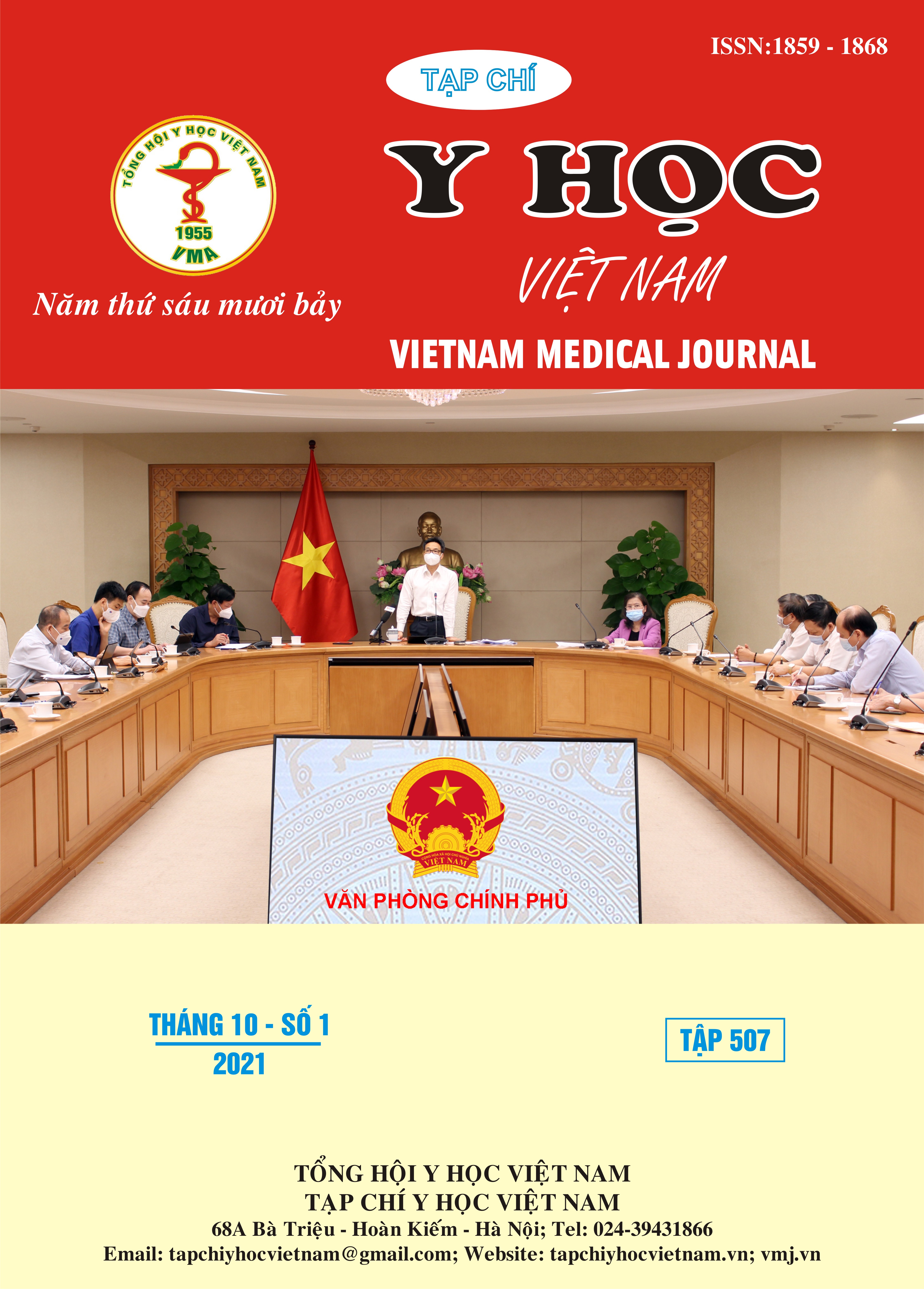CLINICAL FEATURES OF DEPRESSION IN PATIENT WITH SPINAL CORD INJURY
Main Article Content
Abstract
Background: Depression is the most common mental disorder in patients with spinal cord injury. Depression affects many aspects such as reducing quality of life, ineffective exercise and recovery, increasing the risk of suicide, especially affecting the recovery process and social reintegration. Objectives: To describe clinical features of depressive disorders in patients with spinal cord injury. Subjects and research methods: A cross-sectional descriptive study of 107 inpatients with spinal cord injury who were treated at Rehabilitation Center, Bach Mai Hospital and Minimally Invasive Spine Department, Central Acupuncture Hospital from August 2020 to August 2021. Results: The study subjects sociademographic characteristics: men - 87.9%; average age - 43.25 ± 13.74; living in rural areas - 65.4%: lower than secondary education – 38,3%. Some main clinical features: 32.7% patients with depressive disorders, (18.7% mild level) according to ICD-10 criteria; the most common onset symptom was sadness, pessimistic thought (40%); all patients have depressed mood (100%); most commonly low self-esteem, self-confidence and pessimistic thought about the future with the same 94.3%. Conclusion: Depression was a common mental disorder in patients with spinal cord injury. Depression was often first triggered by sadness, pessimistic thought. The most typical symptom was a depressed mood, the most common symptom was low self-esteem, self-confidence and pessimistic thought about the future.
Article Details
Keywords
spinal cord injury, depression, clinical features
References
2. Psychological Morbidity and Chronic Disease Among Adults With Traumatic Spinal Cord Injuries - Mayo Clinic Proceedings. Accessed August 27, 2021. https://www. mayoclinicproceedings.org/ article/S0025-6196(19) 31094-8/fulltext
3. World Health Organization. Spinal cord injury. Accessed June 4, 2020. https://www.who.int/ news-room/fact-sheets/detail/spinal-cord-injury
4. Depression and Other Common Mental Disorder. Accessed August 27, 2021. https://apps.who.int/iris/bitstream/handle/10665/254610/WHO-MSD-MER-2017.2-eng.pdf
5. Kraft R, Dorstyn D. Psychosocial correlates of depression following spinal injury: A systematic review. J Spinal Cord Med. 2015;38(5):571-583. doi:10.1179/2045772314Y.0000000295
6. Migliorini C, Tonge B, Taleporos G. Spinal Cord Injury and Mental Health. Aust N Z J Psychiatry. 2008;42(4):309-314. doi:10.1080/ 00048670801886080


